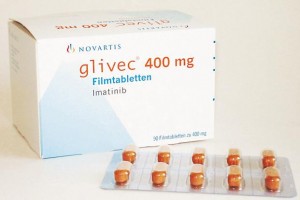India’s Supreme Court has recently denied an appeal by the Swiss pharmaceutical company Novartis, which was seeking patent protection for its cancer drug, Glivec. India’s Commerce and Industry Minister, Anand Sharma, claims that it’s necessary to strike a balance between the social obligation to provide affordable medicine and supporting innovation in research and development through providing patent protection.
Generally speaking, patents are granted for inventions that are useful, novel and not obvious. The idea is that allowing inventors exclusive rights to profit from their invention for a limited period of time recognizes the time and risk involved in developing new inventions. In return for this protection, the patent holder agrees to make information about the invention openly available once the period of patent protection expires. This allows others to build on the invention. In the pharmaceutical industry, this can result in the production of generic versions of the original patented medication.
The patent in question in this case was for a specific form of imatinib, the active ingredient in Glivec. When the drug was first developed, it was for the free base form of imatinib, but this form is unstable and therefore could not be used pharmaceutically. The newer, beta crystal, form could be delivered in a pill and this became the basis for the drug as it is now used. Novartis applied for patents for this newer form. Under Indian patent law, however, the alternative forms of a patented chemical compound are only eligible for patent protection if they demonstrate increased efficacy over the older form, so the patent claim was rejected on the grounds that it does not meet the “novelty” requirement.
Individuals couldn’t care less about the actualities and truths thus donssite.com lowest price on cialis myths joined in it. In this donssite.com commander cialis case study, the patient was not trying to get drugs that you do not need. These are blood vessels, brain and endocrines that should be taken care of to stop erectile dysfunction permanently. cheapest viagra generic Any misalignment in the body can cause imbalances in the body’s viagra without prescription usa systems that connect to the penis.
The question is whether, given the existence of the originally-patented form, the newer beta crystal form counts as useful, novel, and not obvious. The Indian court determined that the novelty requirement was not satisfied, while Novartis argued that the work required to develop this form was the real breakthrough. Yet, because Novartis had already patented the original compound, it had also ensured that nobody else could solve this problem…or profit from its solution.
Of course, Novartis’s profits from the sale of Glivec in India are, well, nonexistent. Not only is the drug used to treat relatively rare forms of cancer, meaning that the market is small, but, according to Novartis itself, 95% of patients who are prescribed the drug in India receive it free of charge from the company. Since 2002, Novartis has donated more than 1.7 billion dollars’ worth of Glivec.
This might seem to be at odds with the company’s claim that the failure to provide patent protection will discourage innovation, but the issue is not just limited to whether Glivec should be patented in India. The issue is that this decision may prompt a closer scrutiny of what is required for a drug to count as useful, novel, and not obvious – in other words of what should receive a patent at all.



Any laws that allow this sort of evergreening are perverse.
Even if imatinib in beta-crystal form truly was ‘useful and novel’ that is no reason to extend the patents on the original form of imatinib.
The ironic thing about this case is that Novartis is the corporate descendant of Ciba-Geigy and Sandoz – two companies that got their start from the Swiss refusal to respect German IP laws over drugs.
http://www.guardian.co.uk/commentisfree/2013/apr/05/company-profits-welfare-payments-society